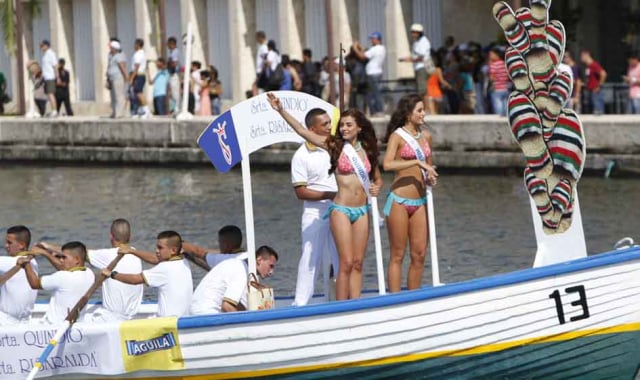The sea has been a source of life and mystery for humanity since time immemorial. Throughout history, cultures around the world have developed a rich variety of nautical customs and traditions that reflect their unique relationship with the ocean. In this article, we will explore some of the most interesting and how these practices have shaped life at sea.
1. The christening ceremony of a ship
Before a new ship makes its first voyage, it is traditional in many cultures to perform a christening ceremony. This practice dates back to ancient Greece, where ships were consecrated to the gods of the sea to ensure safe travel. Today, this tradition includes breaking a bottle of champagne against the hull of the ship, an act that symbolizes good luck and protection for the ship and its crew.
2. Seafarers' Day
Celebrated on June 25, Sailors' Day is an internationally recognized day to honor the vital contribution of seafarers to global trade and the world economy. This day is an opportunity to thank sailors for their hard work and dedication, and to raise awareness of the challenges they face in their professional lives.
3. The use of amulets and protection symbols
From shark tooth necklaces to tattoos of anchors and mermaids, sailors across cultures have used amulets and symbols to protect themselves against the dangers of the sea. In Polynesian culture, for example, tattoos are considered spiritual protectors, and each design has a specific meaning related to strength, protection, and personal identity.
4. The superstition of women on board
In many ancient seafaring cultures, bringing women on board was believed to bring bad luck. However, this belief has evolved, and today, women play vital roles in sailing and the navy. Still, this superstition persists in some maritime traditions, reflecting the complexities of ancient belief systems.
5. The art of celestial navigation
Before the era of GPS and modern technology, sailors relied on the stars to navigate. Cultures such as the Polynesians and the Vikings were masters of celestial navigation, using constellations, the sun and the moon to guide their routes across the vast ocean. This skill not only required deep astronomical knowledge, but also a spiritual connection to the cosmos.
6. Maritime festivals
In many parts of the world, maritime festivals are a way to celebrate our relationship with the sea. In Santa Marta, Colombia , whaling is celebrated during the Sea Festival, a tradition that pays tribute to local fishermen and sailors. In Spain , "Día de Santiago Apóstol" includes processions of decorated boats honoring the patron saint of fishermen. In Japan , the "Festival of the Sea" (Umi no Hi) celebrates the importance of the ocean in everyday life, with events promoting marine conservation and beach recreational activities
7. The Ship's Bell
The ship's bell has been an integral part of nautical life for centuries. Used to signal the changing of the guard, mark the time and warn of danger, each chime has a specific meaning. This tradition is kept alive in most of the world's navies, being a symbol of the discipline and routine of life at sea.
8. The cannon salute
The cannon salute is a maritime military tradition in which ships fire salutes as a sign of respect or salute. This practice originated in Europe and has continued in modern naval ceremonies. A specific number of salutes are fired to honor dignitaries, with 21 salutes being the highest honor reserved for heads of state.
Nautical customs and traditions are a testament to the deep bond between humans and the sea. From protective rituals to celebratory festivals, these practices reflect not only the history and culture of maritime communities, but also their respect and reverence for the ocean. Knowing and appreciating these traditions enriches our understanding of life at sea and connects us to the generations of sailors who came before us.
We hope that you found this journey through the maritime traditions of different cultures as fascinating as we did. Until the next trip!


